Civil Engineering Department of the Institute established in the year 2008-09 and is an autonomous institute affiliated to Savitribai Phule Pune University (S.P.P.U. Pune). The major highlights of the department are as follows:
- The Department of Civil Engineering has received NBA accreditation for three years up to 2025 in Tier1
- Academic and administrative processes are as per ISO 21001:2018
- Department has 18 faculty members with 4 Professors, 4 Associate Professors 10 Assistant professors.
- Department has 09 Ph.D qualified faculty and 09 Post Graduate Faculty.
- Research Grants received through different funding agencies are 54, 06, 900/-
- Department Achievement- 80 Students of Batch 2023 are been placed in the Civil Core, IT Industries.
- Interview of Prof. Shreenivas Londhe and Chief Engineer Dr. H. T. Dhumal of WRD GOVT OF Maharashtra on Doordarshan Sahyadri to elaborate the numerical flood forecasting model developed along Krishna River in the floodprone area from Sangali to Almatti Dam. Link for the same is given below: https://youtu.be/p7NOvHqw64k
- A workshop on “How to write research Paper” was organized by Vishwakarma Institute of Information Technology Pune in online mode from 5 th Feb 2021 to 12th March 2021. Workshop Report
- Total research publications by faculty in peer reviewed journals are 40 (last 3Years).
- Collaborative research with Prof. V. C. Panchang ( Texas A&M university, Quatar), Dr. F. Khademi ( Illinous university, Chichago), Prof. M. C. Deo (IIT Bombay).
- Student Internship Programme with Builders Association of India, Pune Local Center started from year 2012-13.
- Industrial Consultancy and Research Center (ICRC) was established in academic year 2012-13.
- Post Graduate course in Water Resources and Environmental Engineering started from academic Year 2012-13.
- Post Graduate course in Structural Engineering started from academic Year 2013-14.
- Department is approved as Ph.D center by S.P.P.U, Pune from academic year 2013-14.
- Research and Development laboratory was established in collaboration with Pune Construction Engineering Research Foundation (PCERF) and Nyati Group from academic Year 2014-15.
- Department has tie up with P.C.E.R.F., C.W.P.R.S., W.A.P.C.O.S., Sinchan Bhavan, Pune, HDUG Nashik, WRD, Govt of Maharashtra, IITM, Pune, ICI Pune in association of which the students complete their UG and PG Projects.
- 2 Patents are filed and published by the faculty and student of the department.
- Department Faculty has developed In House Equipment through final year projects.
Photo Gallery
Department Placement Highlights:AY 2022-23
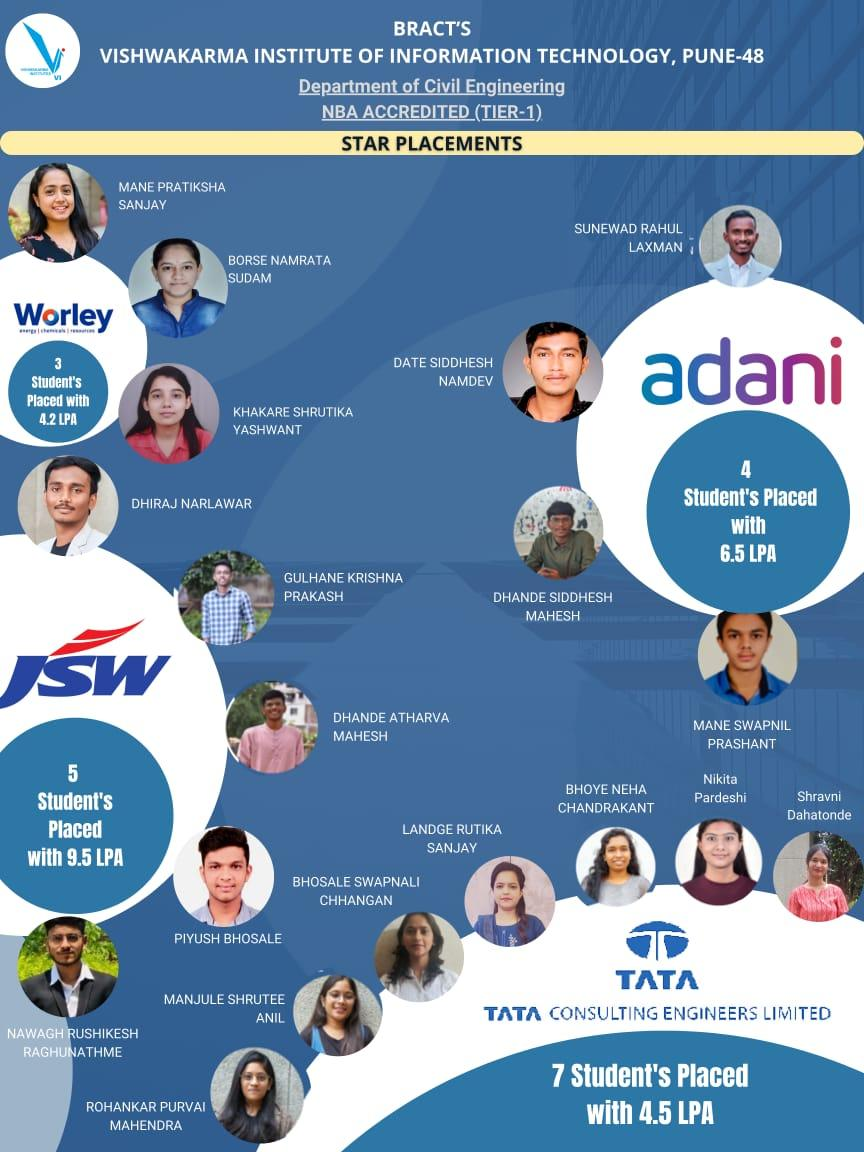
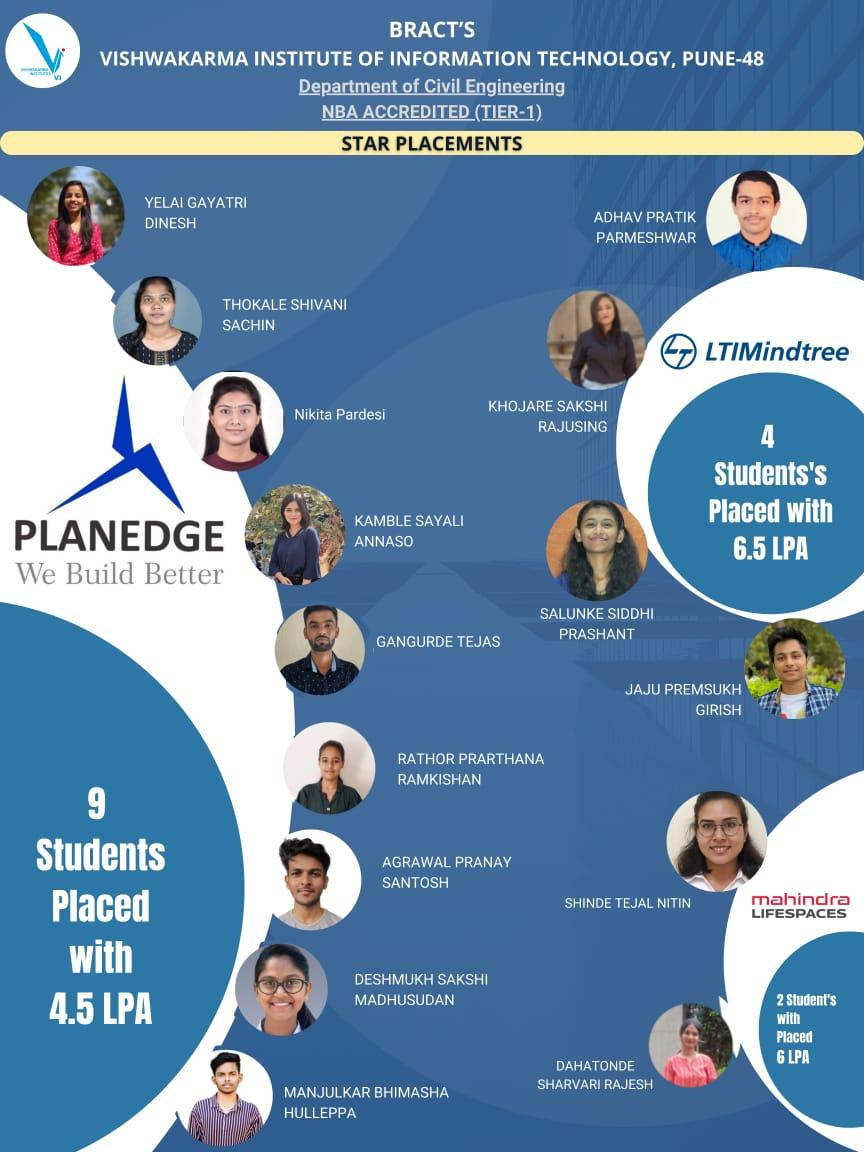
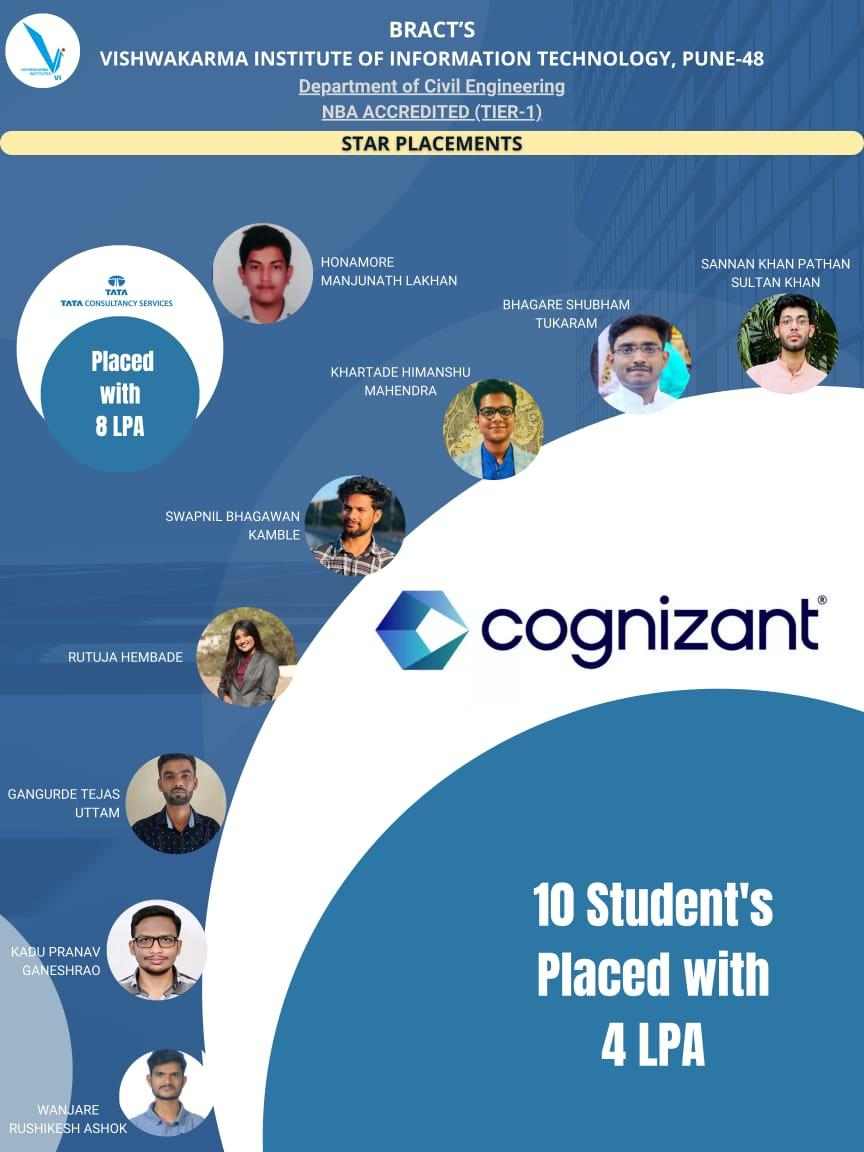
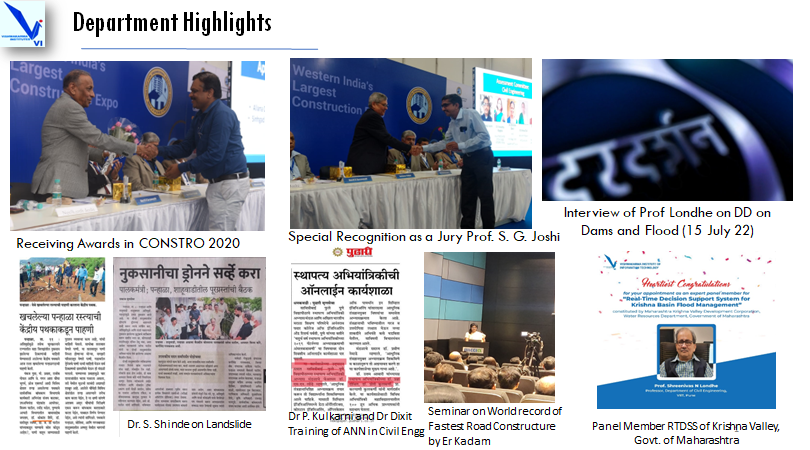
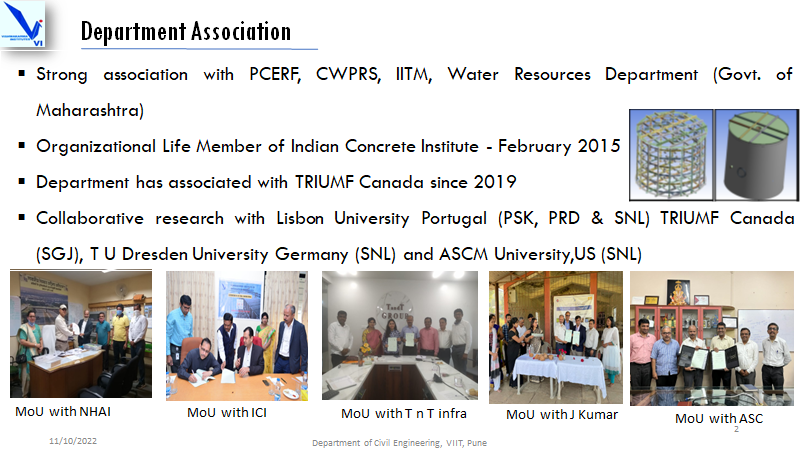
PROGRAM SPECIFIC OUTCOMES (PSOs)
- PSO1: Engineering graduates will be able to plan and execute various activities on construction projects
- PSO2: Engineering graduates will be able to analyze and design components of Civil Engineering Systems.
PROGRAM EDUCATIONAL OBJECTIVES (PEOs)
- PEO1: Graduates will have successful career in the field of Civil Engineering
- PEO2: Graduates will respond to growing demands of society through professional and ethical practices
- PEO3: Graduates will pursue lifelong learning including higher studies in the field of Civil Engineering
PROGRAM OUTCOMES (POs)
Engineering Graduates will be able to:
- Engineering knowledge: Apply the knowledge of mathematics, science, engineering fundamentals, and an engineering specialization to the solution of complex engineering problems.
- Problem analysis: Identify, formulate, review research literature, and analyze complex engineering problems reaching substantiated conclusions using first principles of mathematics, natural sciences, and engineering sciences.
- Design/development of solutions: Design solutions for complex engineering problems and design system components or processes that meet the specified needs with appropriate consideration for the public health and safety, and the cultural, societal, and environmental considerations.
- Conduct investigations of complex problems: Use research-based knowledge and research methods including design of experiments, analysis and interpretation of data, and synthesis of the information to provide valid conclusions.
- Modern tool usage: Create, select, and apply appropriate techniques, resources, and modern engineering and IT tools including prediction and modeling to complex engineering activities with an understanding of the limitations.
- The engineer and society: Apply reasoning informed by the contextual knowledge to assess societal, health, safety, legal and cultural issues and the consequent responsibilities relevant to the professional engineering practice.
- Environment and sustainability: Understand the impact of the professional engineering solutions in societal and environmental contexts, and demonstrate the knowledge of, and need for sustainable development.
- Ethics: Apply ethical principles and commit to professional ethics and responsibilities and norms of the engineering practice.
- Individual and team work: Function effectively as an individual, and as a member or leader in diverse teams, and in multidisciplinary settings.
- Communication: Communicate effectively on complex engineering activities with the engineering community and with society at large, such as, being able to comprehend and write effective reports and design documentation, make effective presentations, and give and receive clear instructions.
- Project management and finance: Demonstrate knowledge and understanding of the engineering and management principles and apply these to one’s own work, as a member and leader in a team, to manage projects and in multidisciplinary environments.
- Life-long learning: Recognize the need for, and have the preparation and ability to engage in independent and life-long learning in the broadest context of technological change.